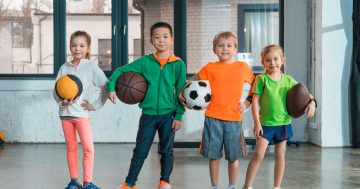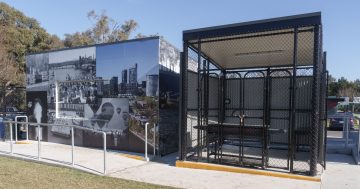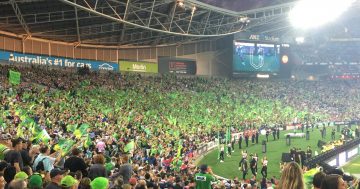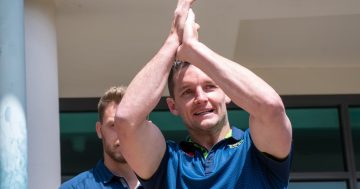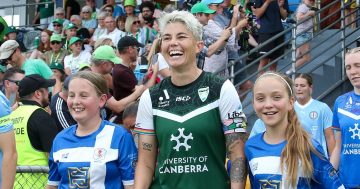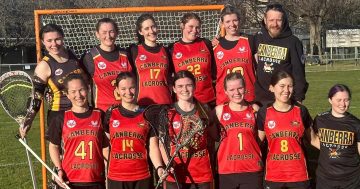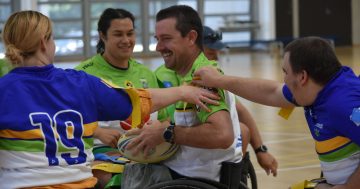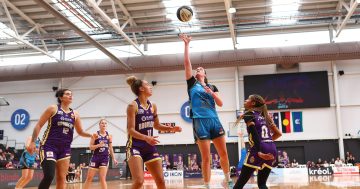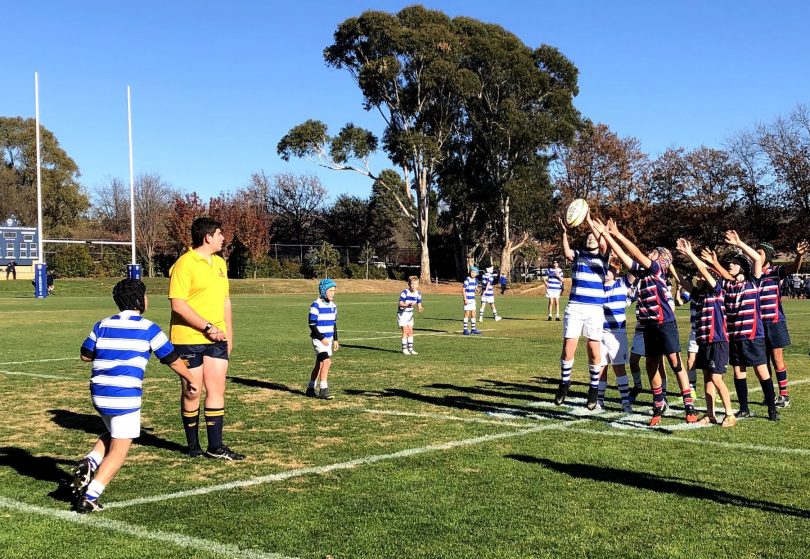
St Edmunds v Easts junior rugby game last winter. Photo: Emma Davidson.
No sooner are rules put in place to enable the NRL to return to training than players are looking for ways to get around them.
I’m looking at you, Bryce Cartwright and Brian Kelly.
They’re the Gold Coast Titans players who have refused a flu vaccination, but still wanted to train.
And you, Melbourne Storm, taking over a 144-year-old regional, working-class Aussie Rules club oval to get around the local council banning you from their facilities.
Meanwhile, community sports clubs are finding their own ways to cover costs and maintain contact with their players while respecting the spirit – not just the letter – of the laws put in place to reduce transmission of the coronavirus and keep all of us safe.
The NRL begins play again on 28 May and the AFL says they’ll be back on the field by 11 June, but PM Scott Morrison said at the end of last week that community sports competition, as opposed to training, must wait for the second stage of easing restrictions, still being worked through.
Sport is much more than a game. It’s the way we set standards of behaviour, define leadership and manage community wellbeing. Joining a club means new friends, and a week filled with struggles is redeemed by a satisfying skirmish on the weekend. Players who disgrace themselves off the field may find they’re dropped from the lineup.
A community that has been through a lot – bushfires, floods, loss of loved community members – comes together to sing the club song and we remember that we’re all in it together. No matter how many times we’re knocked down, our team is there to help us get up again.
That’s the real win: that we’re part of something older than any of us, and we’ll be back next weekend no matter what life throws at us. Particularly in contact sports, where the game provides an outlet for existential worries and reignites the will to live in the most visceral way.
It is true that we can’t be what we can’t see. But it’s not enough just to watch elite athletes go higher, further, faster. We won’t find the next Darcy Vescio or Christian Leali’ifano or Ellyse Perry without community sports. Playing the game is the ultimate lesson in resilience, perseverance, recovery, and that amazing feeling when we achieve what we set out to do.
We all need to feel the impossible become reality, to challenge our assumptions about what our fragile human bodies can do. Especially now.
Sport is ultimately about what it is to be human. When we stand on the sidelines to cheer on our friends and family at Saturday rugby or Sunday afternoon cricket or Wednesday night netball, we’re collectively channelling positive energy into their efforts to be more than what any one of us can be alone. It’s a transformative effect. As Paul Kelly wrote about Bradman, And in the hour of greatest slaughter the great avenger is being born.
It’s not really the level of sporting ability that drives the feeling. It’s that we’re supporting our team physically together, as a community, not alone in front of a glowing electric box in our suburban brick veneers.
In my experience, watching my local club win the grand final after years of wooden spoons can be just as powerful a moment as watching the Wallabies win a World Cup.
Right now, every professional sporting code in the country is, like all businesses, keen to get back to their usual routine. Some are willing to forgo the crowds at the stadium just to play for a TV camera.
But our community sports clubs are also hoping to see each other in person again when it’s safe to do so, and it’s not about the money. It’s about the game, and what it means to all of us. How fair is it for community clubs to sit it out, while professional sports find ways around the physical distancing rules to make an early return to the field? What does this reflect about what sport means?
Australia is a country whose concept of leadership is based on war and sports, with sports heroes being the palatable option most parents encourage for their children. There will come a time when groups can gather again in enough numbers to field two teams, even if only for non-contact games. Let our kids back on the field first, so they can experience what it feels like to go from an ordinary human existence to being a superhero. Let them lead us back to being a strong community again.
Emma Davidson is the ACT Greens candidate for Murrumbidgee and spokesperson for sports and recreation, a volunteer for community sports clubs in Woden, and Canberra’s slowest roller derby skater.












